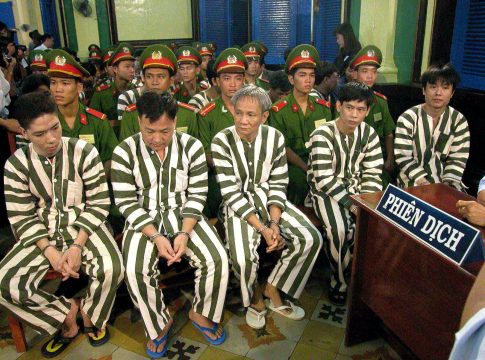Vietnam Abolishes Death Penalty for Eight Major Crimes, Replacing It with Life Imprisonment
Hanoi, Vietnam — In a significant shift in its criminal justice system, Vietnam has announced the removal of the death penalty for eight serious offenses, replacing capital punishment with life imprisonment. This reform, recently passed unanimously by the National Assembly, reflects the government’s evolving stance on justice and human rights.
Legislative Changes
As of July 1, 2023, individuals charged with crimes such as embezzlement, bribery, espionage, and attempts to overthrow the government will no longer face execution. The new legislation also applies to offenses related to sabotaging state infrastructure and the production and distribution of counterfeit medicines. Those currently sentenced to death for these crimes will have their sentences commuted to life imprisonment if they have not yet been executed.
The change prompted widespread discussion among legislators, particularly regarding drug trafficking. Some lawmakers raised concerns, arguing that eliminating the death penalty for such offenses could undermine efforts to combat a rising tide of drug-related crime. One legislator emphasized the magnitude of harm caused by drug trafficking, regardless of the amount involved, highlighting the complexity of the issue.
Remaining Capital Offenses
While this legislative amendment marks a significant reform, capital punishment will still be enforced for ten other crimes under Vietnamese law, including murder, treason, and terrorism. The authorities have not disclosed how many individuals are currently on death row, as data on capital punishment in Vietnam is classified as a state secret.
Vietnam’s execution methods have also evolved. Execution by firing squad was abolished in 2011 and replaced by lethal injection, indicating a modernization of its penal practices.
Broader Implications
This move towards abolishing the death penalty for certain crimes aligns with a broader global trend of reconsidering capital punishment. Advocates for reform in Vietnam are hopeful that this step could pave the way for further changes in the nation’s judiciary, reflecting a more progressive approach to justice.
As Vietnam transitions into this new legal framework, the implications for crime prevention and human rights remain to be seen, with observers keenly watching the effects on the legal landscape.

Focuses on crime, public safety, and regional events.
Bio: Marcus is a community-based journalist passionate about reporting impactful stories that matter most to readers.

